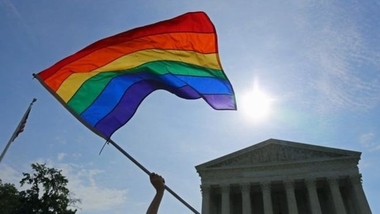Same-sex parental custody debate in Michigan, Tennessee

by Lauren Dow
Journalism Intern
Same-sex parental custody is the new frontier in the gay-marriage debate. In the past few weeks, courts in Detroit and Knoxville have ruled on precedent setting custody cases.
According to the AP, the Michigan appeals court ruled July 6 that a woman whose same-sex relationship ended before gay marriage became legal doesn’t have parental rights to a child born to her partner in 2008.
This decision will stand as a key precedent in similar disputes in Michigan involving children raised by gay and lesbian parents that end their relationships.
The couple, Michelle and Kerri Putnam, were together for 13 years—until 2014, but never married. Putnam gave birth to a boy, now 8, during the relationship, but no longer allows Lake to see him.
The court said of the ruling, “We simply do not believe it is appropriate for courts to retroactively impose the legal ramifications of marriage onto unmarried couples several years after their relationship has ended. That, in our view, is beyond the role of the judiciary."
The court said Lake has no parental rights under Michigan law because the boy wasn't born during a marriage.
"This is true whether the couple involved is a heterosexual or a same-sex couple," it said.
This ruling overturned a Washtenaw County judge’s decision that awarded Lake parental custody.
This case come just weeks after the ruling in Knoxville, Tenn., in which a judge ruled that a woman in a same sex divorce case had no legal rights to a child she and her wife have raised because of a 1977 law regarding artificial insemination.
The Knoxville News Sentinel reported that Knox County Circuit Judge Greg McMillan ruled that as a result of the wording in the old law, the woman could not be legally recognized as a parent.
The decision involves the divorce and child custody case of Erica and Sabrina Witt, who legally married in Washington D.C. in April 2014 then settled in Knoxville. Sabrina Witt gave birth to a baby girl in January 2015 as a result of artificial insemination, according to the AP.
Because same-sex marriage was outlawed in Tennessee at the time of the marriage and the child’s birth, Erica’s name was not place on the birth certificate.
Sabrina Witt’s attorney argued that the sole Tennessee law on artificial insemination says that parental rights, aside from the mother’s, only apply to husbands.
Erica Witt’s attorney countered that, in light of the U.S. Supreme court ruling legalizing gay marriage, the court should find Tennessee’s artificial insemination law unconstitutional.
According to the AP, McMillan ruled that his hands were tied by a strict reading of the artificial insemination law and that it was not up to the court to enact "social policy."
"I believe as a trial court I am not to plow new ground, but to apply precedent and the law," McMillan said.
The judge did allow Erica Witt to appeal before he made a final ruling in the divorce case, saying it was more appropriate for the Tennessee Court of Appeals to weigh in. In the interim, he ruled that Erica Witt may apply for visitation in the same manner a stepparent could, however, without recognition as a legal parent, Erica Witt will have no say in decisions that impact the child’s life, such as medical needs and education. She will not provide child support.
In light of the recent cases it seems that the “trickle-down” of the momentous U.S. Supreme have just begun. While the circumstances of the two cases differ slightly, it’s clear that old state laws do not account for or accommodate gay and lesbian couples in parental custody cases.
The Gayly – 7/7/2016 @ 6:00 p.m. CDT





